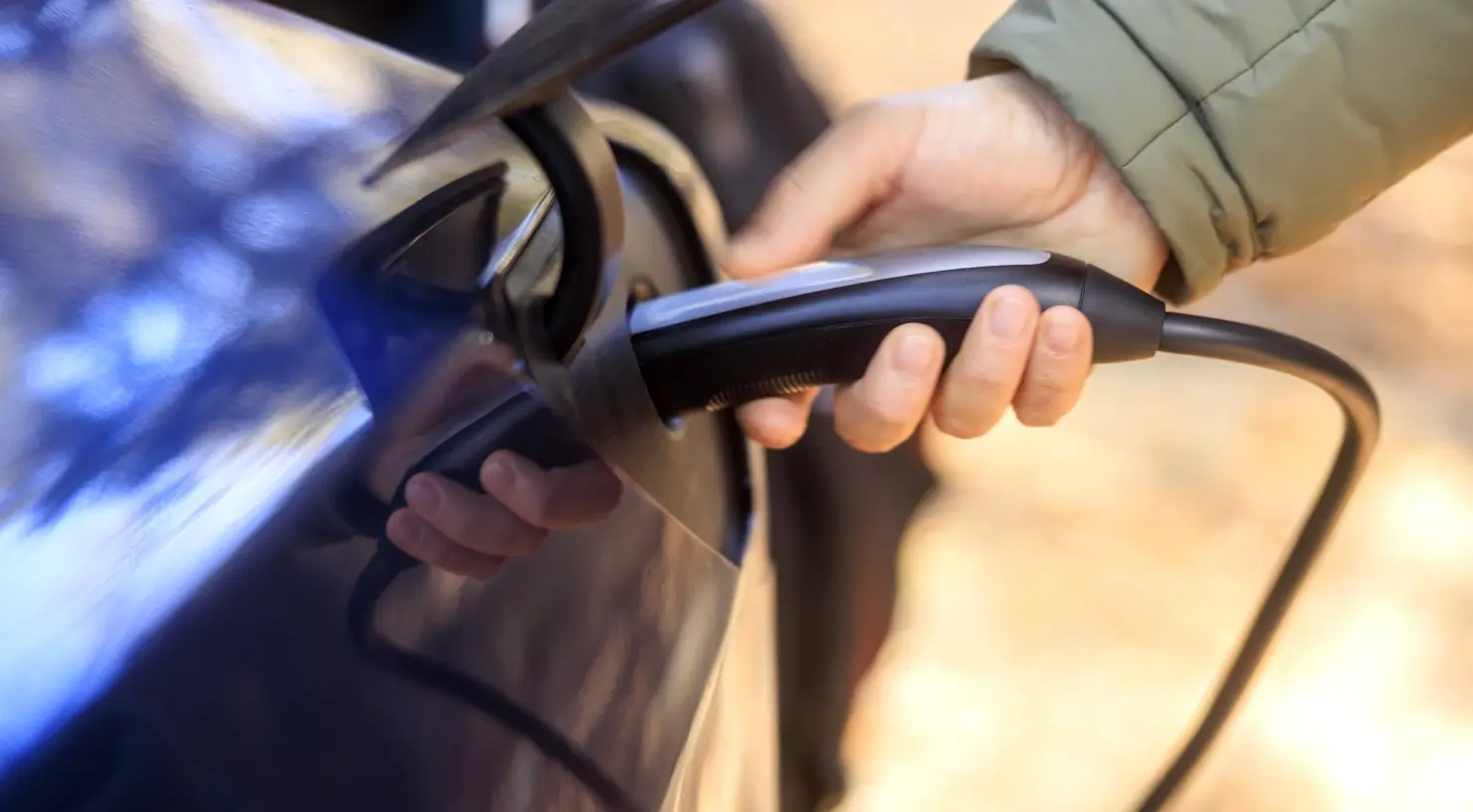Electric Vehicle Charging Connector and Adapter Compatibility
As the volume of electric vehicle (EV) options increases alongside a growing charging infrastructure at home and on the go, EV drivers have more ways to charge than ever. This means compatibility between vehicle connectors and charging stations is critical to get a charge—and for industry to more easily innovate.

The Joint Office of Energy and Transportation (Joint Office) aims to create that compatibility and lay the groundwork for better charging in the future by advancing charging standards and facilitating research-based guidelines in collaboration with the private sector.
Convening and Guiding the Adoption of an Open Connector Standard with SAE J3400
An open standard for charging connectors will simplify the EV ecosystem, making it easier for consumers to charge and setting clear guidelines so the industry can continue delivering new technology. The Joint Office works closely with SAE International, an established automotive industry standards body, on charging standards, including aligning roadmaps from public and private sectors and providing technical and research expertise.
SAE is convening automakers, manufacturers, and charging infrastructure companies to develop an open standard for EV charging hardware. The standards development process is focused on the new SAE J3400 connector, in response to multiple automakers’ decisions to adopt the North American Connector Standard (NACS), developed by Tesla.
Benefits:
-
The immediate benefit of opening up J3400 was that it gave more EVs access to Tesla’s Supercharger network.
-
Once the standard is implemented by EVs and EVSEs, consumers will be able to charge any vehicle at any location, reducing or removing the need for adapters.
-
For suppliers and manufacturers, it means they have a clear framework within which to manufacture and deploy the J3400 connector on EVs and at charging stations across North America.
J3400 also lays the foundation for an improved EV charging experience by supporting higher charging rates; the connector is rated to support DC supply at up to 1000 volts with current up to 1000 amperes (with adequate cooling). J3400 also expands opportunities for new capabilities like vehicle-to-grid energy transfer and support for bring-your-own-cord technology. J3400 also could reduce the cost of AC charging installations, particularly in commercial sites where 480 volt 3-phase AC power is available by supporting 277-volt AC supply to the EV.
Read SAE’s overview of its standardization process and latest updates on J3400.
Coordination with Industry Trade Groups
Interoperability and industry-wide consensus accelerate charging system reliability and overall EV adoption. The Joint Office coordinates with industry trade groups, such as the Charging Interface Initiative (CharIN), that include automakers, EVSE manufacturers, component suppliers, energy providers and grid operators to address active concerns related to the ease of charging. Such partnerships also facilitate the industry to rapidly improve interoperability through focused engineering workshops and test events.
As the North American EV charging industry migrates to the J3400 connector standard, there will be a transition period where both CCS1 and J3400 connectors will be prevalent in vehicles on the road. To ensure that all drivers, regardless of their vehicle’s connector type, have a seamless charging experience, CharIN has established the North America Charging Interoperability (NACI) Task Force to ensure connector agnostic interoperability with ISO 15118/ DIN SPEC 70121 standards, to develop implementation guidelines and to promote best practices.
Increasing Adapter Safety with UL 2522
During the transition to the SAE J3400 connector standard, EVs may require an adapter to access more chargers. While adapters are not the most convenient or efficient option for charging, if an adapter is needed to connect to a charger, it is critical that it is safe and reliable.
UL 2252 will be the standard for adapters that indicates the product has been tested effectively. UL Solutions is an independent testing and standards organization that offers safety, security, and performance testing and certification.
Until UL 2252 certified adapters become available, customers should only use adapters provided by their vehicle manufacturer for their specific vehicle and use them as instructed. Not all adapters work for all models of vehicles or chargers.
Read this Joint Office report on adapter safety.
You Might Also Like
- Primer: Charging connectors and National Electric Vehicle Infrastructure guidelines
- News: Joint Office of Energy and Transportation Continues to Advance an EV Charging Network That Works for All Consumers With Support for the Newly Released SAE J3400 EV Coupler Recommended Practice
- Publication: Recommended Actions to Improve Adapter Safety
